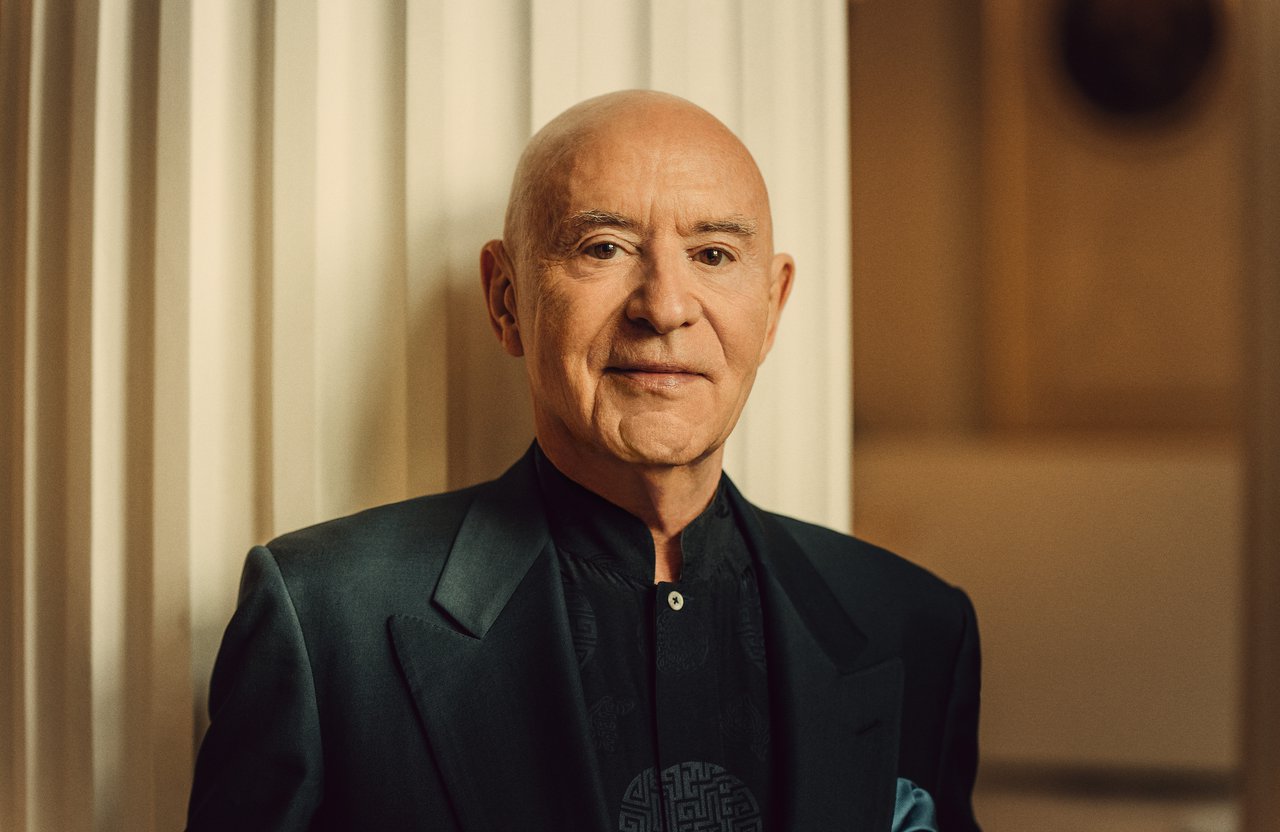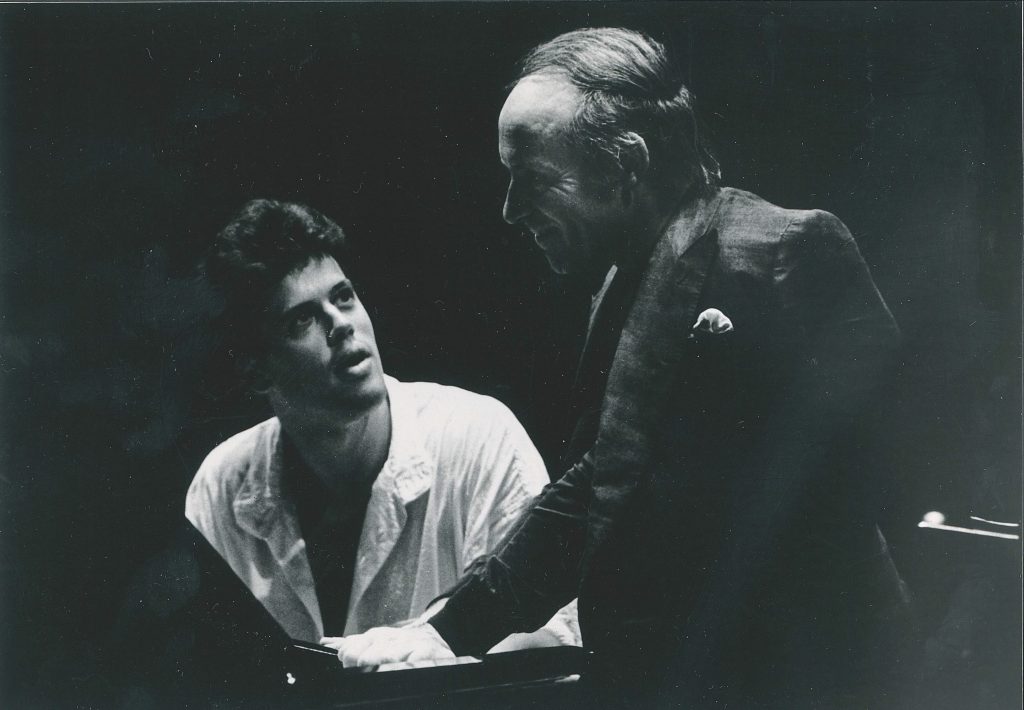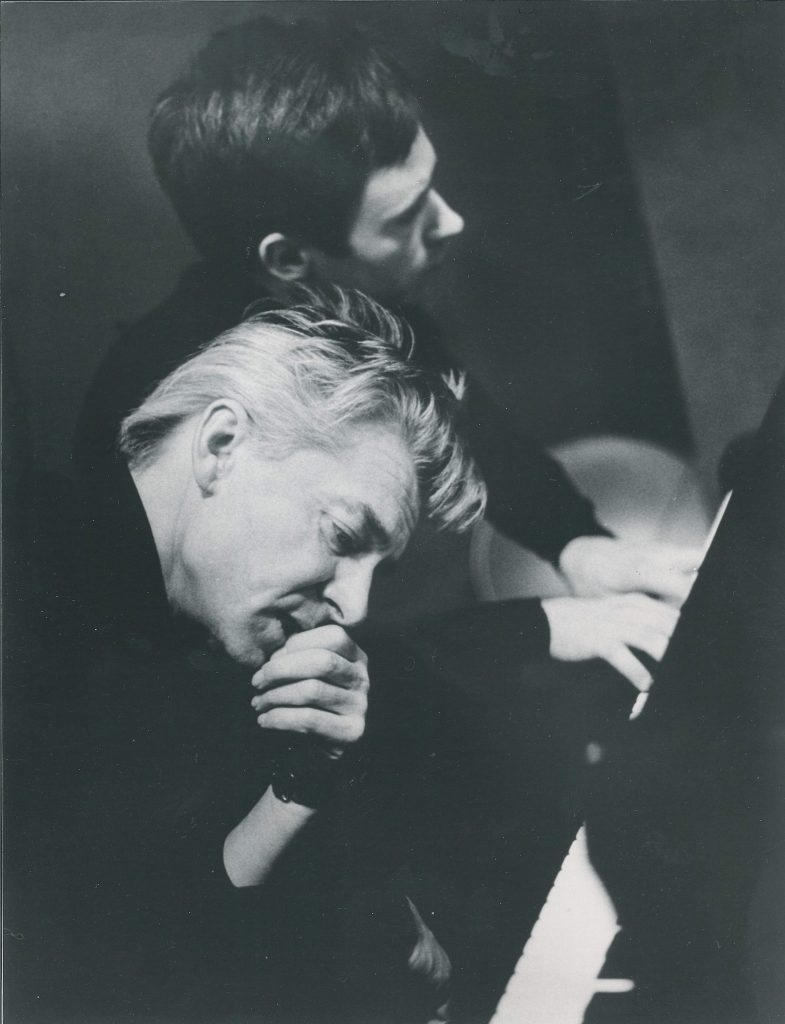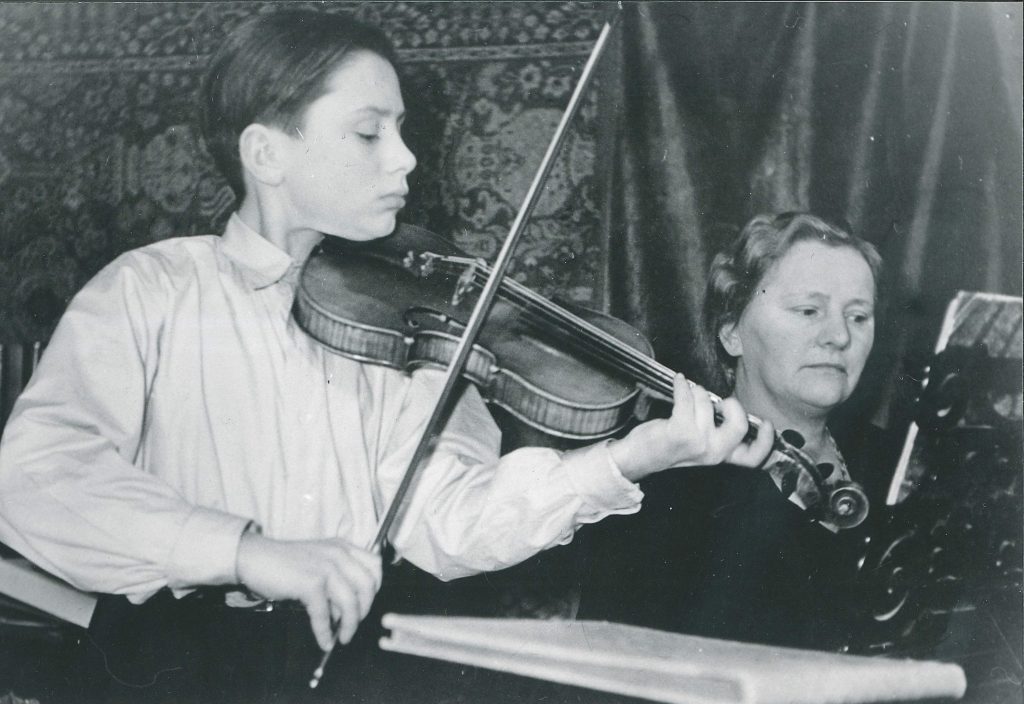11.00 Uhr
cappella academica, Christiane Silber
 © Jonas Holthaus
© Jonas Holthaus
Author Irene Dische, who lives in New York and Berlin, and our former Chief Conductor Christoph Eschenbach have been close friends for a long time. For us, she wrote a wonderful text about an extraordinary human being. We are republishing it again due to his 85th birthday on February 20.
We are villages. In any one person, you might find a criminal, his lawyer, a fool and a thinker. You’ll certainly meet a child, along with a husband and a wife, a grandmother, a lover, all crowded into one personality. Sometimes these personages vie for control, one may take charge of all public interactions, while another manages private life. If you claim to find someone familiar after a brief encounter, you are fooling yourself. Imagine glancing at the figures in a Brueghel painting and saying, I know what they’re like.
Appearance is the only easy part to define. Christoph Eschenbach’s figure is compact, with neatly drawn lines unusual for someone in his seventies (age usually makes such a mess). His face has kept clear, strong features. His dark eyes seem to have shades he keeps drawn, so a stranger cannot look inside. His voice is soft. I have known him long and well enough to have spats with him, but I’ve never heard him raise his voice. Perhaps the village Priest administers his exterior. A quiet, contemplative priest, with a spiritual life he doesn’t broadcast. He dresses simply, in monochrome colors. He has carried the same handbag and wallet for as long as I’ve known him. He eats when he’s hungry. If given the opportunity, that is, when he’s home, he eats the same thing every day, gorgonzola and tomatoes, smoked salmon and toast. The Priest drinks Barolo. He cleans up after himself. If necessary, he cleans up after others.

That brings us to one major persona: a mother/father, a Nurturer. Christoph was never interested enough in conventions to follow them, he never married, and never raised a family, but he has many grown children, men and women from different continents, musicians he has trained and influenced and looked after. He is always interested in what they are doing, supportive and proud when they succeed. He never meddles in their private lives, he lets them make mistakes. Which brings us to someone missing from his personality – the Judge is missing entirely. And there is no sign of a Policeman.
So who else is in there?
I’m not going to lie – when it comes to technology, the Village Idiot takes over. Christoph has mastered his toaster. But electronics elude him. Christoph’s Pianist views the computer with hostility – his supple fingers stumble on its keyboard. His iphone defies him. At home, he has kept his old landline phone, from the past century. There may not be another one like it in northern Europe.

Then there’s the Vagabond. He is often in control — Christoph is one of the few who travel without complaining. . Always, always late to the airport, I’ve seen him sauntering along as if he’s smelling the roses. The sight of an already empty gate and aggrieved airline staff doesn’t perturb him. Perhaps he will still make the flight, perhaps he won’t, and it’s no matter. He travels for work, and when he relaxes, he travels by sail boat. He doesn’t mind storms. When a plane is delayed, or lands in the wrong country, he doesn’t rebuke fate. Sometimes he admits to being eager for a good night’s sleep after he’s traveled thrice around the globe.
The Vagabond enjoys solitude, he is content to be on his own for long periods. He doesn’t need possessions. The few that he likes, he keeps for decades without tiring of them. When he has company, though, he enjoys sharing what he has. His generosity is very striking. He would share his last crust of bread. With musicians, he gladly shares the limelight.
The Gardener is the enemy of the Vagabond. The Gardener keeps a gorgeous rooftop garden in Paris and he knows every detail of it. The Gardener and the Musician are great friends, the Maestro prefers to study his scores sitting among flourishing spring flowers, the Tour Eiffel in the background. There are other gardens – paintings on his walls at home, and in museums; he is an avid museum goer. He also has a beautiful garden of books that he visits and re-visits.

I have left the most important personage for last. This is a little boy who was badly wounded in the War. He is independent, protects himself. When he loves others, he loves them heroically, at all costs. (When you’ve lived a long time, you love many. Just because they’re not around, doesn’t mean you love them less.) This little boy has lost his mother, his father, and his grandmother. There is no one familiar left, and he is ill. A stranger takes him home, and puts him to bed. He cannot get up. She is a piano teacher. She gives lessons and he listens. Weeks go by, he doesn’t speak, but he listens to her play. This little boy became a pianist and a conductor. But when someone else plays for him, the Musician is also the little Boy, recovering from typhus, listening full of wonder and gratitude and humility, as if the music has rescued him. And this attitude governs his life: a kind of surprised, humble delight in all of it.
Originally written in English
Credits: Jonas Holthaus (title portrait); private archive Christoph Eschenbach (with Tzimon Barto 1988; with Herbert von Karajan 1966; playing the violin together with his mother Wallydore at the piano)